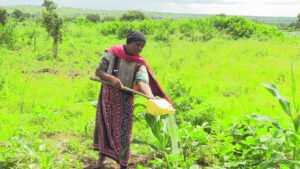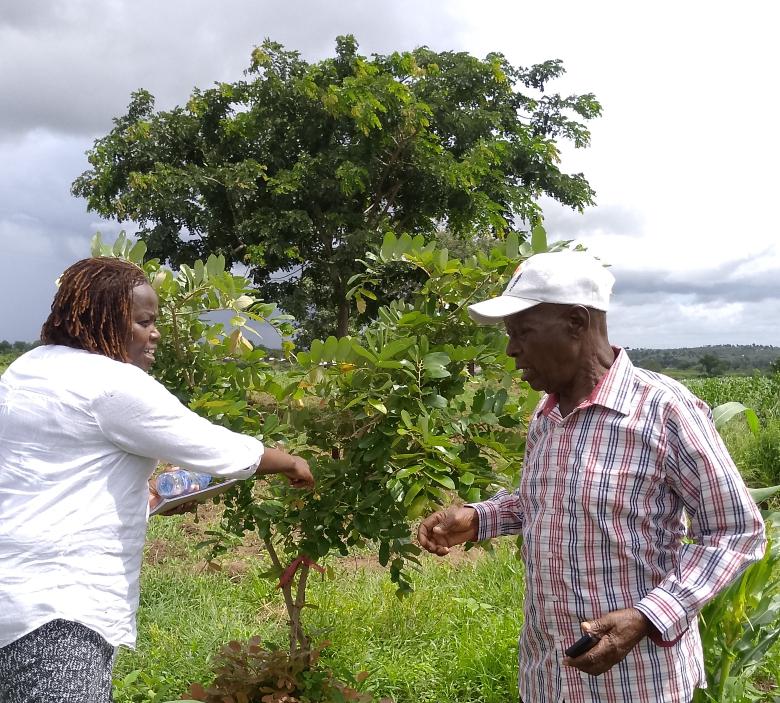By Primerose Omoto
For years, farmers in Patanani village, Mwangulu ward of Kwale County, struggled with the harsh effects of climate change. Forests disappeared, rainfall became unreliable, and farms turned dry and unproductive—all largely due to deforestation for charcoal. Food insecurity and poverty grew worse with each passing season.
But change is taking root.
Thanks to the Global EverGreening Alliance’s Restore Africa Program, local farmers have launched the Visiki Hai Initiative—a powerful model of community-led environmental restoration. One of the key approaches being used is Farmer-Managed Natural Regeneration (FMNR), which teaches farmers how to revive trees from old stumps and integrate new seedlings into their farms through agroforestry.
Meet Fatuma Ndaro, 48, and her husband, Said Ndaro, 70. They are among the many who have embraced this initiative. On their 1.5-acre farm, they’ve dedicated half an acre to FMNR. So far, they’ve planted 48 seedlings, including mango and casuarina trees.
“Many of us didn’t understand the value of trees until it was too late,” Fatuma explains. “When the trees were gone, we saw the soil suffer, and the rains stop. This program has opened our eyes. It’s given us knowledge and seedlings to help restore our land.”
Walking through their farm, the difference is visible. The soil is healthier, and their crops—maize, cassava, cowpeas, and vegetables—are thriving again.
The program also promotes sustainability through climate-smart practices. Each year, participating farms are assessed for how much carbon they’ve helped remove from the atmosphere. This is converted into carbon credits, offering farmers an additional source of potential income.
So far, 50 farmers in Patanani have adopted FMNR, helping restore their landscapes and build resilience to climate change. Similar projects are ongoing in Kilifi, Narok, Migori, and Elgeyo Marakwet.
“These farmers are not just planting trees—they’re rebuilding food security and hope,” says Dismas Nyaga, World Vision’s Kwale County Program Manager. “We aim to reach 50,000 households across Kenya.”
The program also supports different crops across regions—green grams in Kinango, citrus fruits in Shimba Hills, cassava and cashew nuts in Kilifi.
Still, challenges remain. Access to clean water is a major concern. Most households rely on untreated dam water. Fatuma calls on the county government and NGOs to support more rainwater harvesting projects.
“We have one water point from Governor Achani’s project, but we need more. Clean water is a big challenge in remote areas like ours,” she says.
Despite the hardships, Fatuma and Said are optimistic and committed. They actively encourage others to join the Restore Africa Program.
“I’ve learned so much. We now have food on the table, and I’ve started saving with a local group,” Fatuma says with a smile. “As long as my farm keeps producing, I’m happy.”


